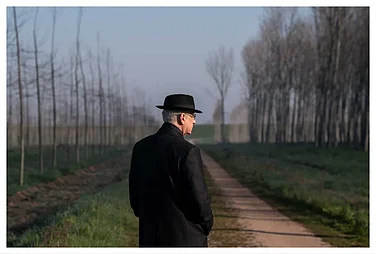Shrini, 38, came to Mumbai in 2003 to help pay a debt that he says took a decade of his life. A daily wage labourer, he made Rs. 50 a day for 12 hours of gruelling work. He was only 16 at the time. His father had been a mason in Mumbai but what he earned couldn’t provide for the 10 members in the family. That’s when his mother and brother also decided to work at construction sites, hoping that if they all worked, they’d be able to pay off the loan sooner. They stayed near Mulund then.
In 2005, a relative of his, told him to join the film industry and Shrini got a union card. He used up his savings which amounted to Rs. 5,000 but for six months he worked in the construction department and didn’t get paid. “I struggled a lot in life,” he says.
Over the next few years, he continued to build sets and remembers that they would wake up at the crack of dawn, make lunch and go to the site. The pay was slightly better. Rs. 500 per day but it sometimes meant pulling out nails from wooden planks all day.
His break came when he went to Kashmir in 2007 to work on a set for art director Shruti Gupte. That’s when things changed.

In 2010, he became a Propmaster and learned to work with memory. Like remembering how much a cigarette had burnt in a scene so that he could start off from there for the next one. “There were so many details to remember to maintain continuity,” he says.
He worked with many people in the art department and says he learned a lot from all of them.
Shrini paid off the debt finally. He still lives in a chawl but built a small house in the village, got married and now makes around a lakh per month. “I never thought I could get here. I used to stay on footpaths. Now, I stay in hotels. It has been a long journey,” he says.
The toughest moment, he recalls, was when he had to lug cement bags up fifteen floors on construction sites when he first began in Mumbai. It is an appropriate Sisyphean metaphor for his life. Except he changed the script.
(This appeared in the print edition as "Surpassing Sisyphus")


























